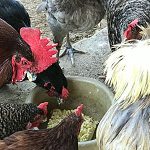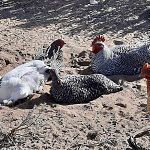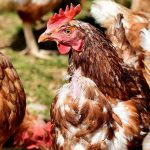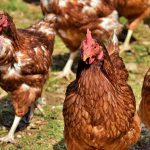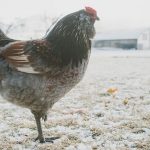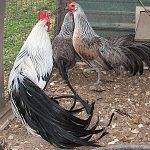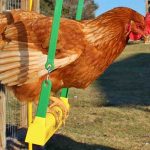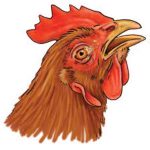
A chicken normally breathes with a closed beak. A chicken breathing with an open beak is either ill or under stress — perhaps from heat or anxiety. Respiratory diseases of chickens usually include additional signs, such as sneezing, coughing, wheezing, a runny nose, or sticky eyes. Most respiratory infections are highly contagious. Some result from […]
Continue Reading
